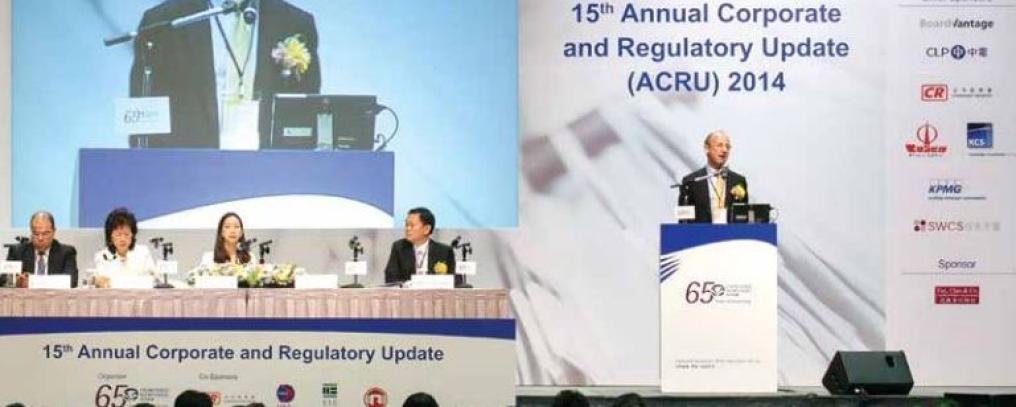The Competition Ordinance, which is expected to be implemented next year, presents unprecedented opportunities and challenges for company secretaries and compliance professionals in Hong Kong. Zoe Chan So Yuen FCS FCIS, Solicitor, argues that it is time for business leaders and company secretaries to have their internal policies reviewed regarding competition law compliance. This article also proposes why company secretaries are well equipped to help implementing a competition compliance programme.
Globally there has been a much more vigorous enforcement of competition legislation. International case decisions highlight that certain established industry practices are now being classed as anti-competitive activities such as price fixing; market allocation in supply chain management; quantitative restrictions
on the output of goods or services in distribution networks; and bid-rigging in procurement. We have also seen the globalisation of investigations, huge monetary penalties and the increased use of disqualification orders imposed against individual officers. Compliance with competition legislation has therefore become all the more imperative for businesses globally.
Hong Kong's new competition law is certainly part of this international trend. Many well-established industry practices and commercial agreements or understandings will come under close scrutiny once the law has been implemented. Particular attention needs to be paid to the first and second conduct rules of the new law which deal with anti-competitive agreements or concerted practices and abuse of substantial market power.
Hong Kong's new competition law should be regarded as both a sword and a shield – while it poses a compliance risk it also defends companies against anti-competitive practices. It is uncertain which industry or sector will be targeted first for investigation or enforcement. Some argue that Hong Kong business practices have unique family-dominated business features and overseas lessons cannot be directly borrowed or used locally. As such, the new rules will provide a good opportunity for business leaders and company secretaries to review their current practices and competition policies. A competition compliance programme (CCP) can be fully and effectually used by business units so as to ensure they have a sound compliance framework and strategy.
Why implement a CCP?
Hong Kong's new competition law presents a new compliance challenge to company secretaries in Hong Kong and there are uncertainties as to how the Competition Commission will enforce the law. The Hong Kong Institute of Chartered Secretaries has issued detailed guidelines on the new law to assist members in their compliance programmes. Equipped with professional skills in corporate compliance and administration, chartered secretaries are well positioned to work as corporate caretakers of the new law. They can identify the high-risk areas in compliance and recommend frontline staff training to ensure staff are familiar with the law. Implementation of a CCP will help mitigate your business risks and reduce compliance costs. Moreover, management participation in a CCP can be a mitigating factor which may substantially reduce any penalties imposed by competition authorities. This is certainly borne out by overseas case experiences. If an undertaking does not qualify for total immunity because the corporation sought leniency after the competition authorities commenced investigations, it may still benefit from a reduction in financial penalties if it can prove it adopted a CCP. Overseas competition case decisions reveal that offenders are often required to take the first available opportunity to apply for leniency with competition authorities and reduction in financial penalties often depends on an assessment of the use of a CCP against the facts of each case and various other factors including and not limited to:- the managerial approach to the CCP (for example, director's knowledge and training regarding the CCP)
- the timing of the offender's undertaking/ immunity application to the competition authorities, and
- the quality of the information or evidence provided to the competition authorities.
Components of an effective CCP
The UK Office of Fair Trading recommends a four-step competition law compliance process, namely: risk identification, risk assessment, risk mitigation and review. The Australian Competition and Consumer Commission refers to the need for businesses to identify, remedy and reduce the risk of competition law breaches as part of their compliance programmes.
An effective CCP consists of a top-down risk management policy which ensures compliance with competition legislation.
Although corporations’ CCPs will differ depending on the nature and type of their businesses, compliance professionals should ensure the following key components are present.
1. A corporate or mission statement, supported by senior management, should set out the priorities, a roadmap and policies relating to competition law compliance.
2. There should be training materials (tailormade to your business and industry needs), particularly for
those who work in high-risk areas. Also, periodic reviews involving frontline staff should be carried out to coordinate and confirm that the programme has been working well. This will involve an interdepartmental joint task force headed by the human resources department, business development department, internal audit department, and legal and compliance departments.
3. Reference materials and a work manual should be available evaluating in layman's terms what the competition law means and how it applies to your business, using relevant examples. For SMEs, this can be a simple list of 'dos' and don’ts' or work checklist for frontline staff to comply with the law.
4. An annual compliance report (including an internal control and annual competition audit) should be issued for stakeholders’ reference.
Depending on the size of the company, a rigorous CCP should contain a corporate- wide competition law compliance audit of processes and procedures. The UK Office of Fair Trading guidance suggests that such a programme must have four main features to be successful:


- support of senior management
- appropriate policies and procedures
- training, and
- regular evaluation.
The role of the company secretary
An effective compliance programme should also include a clear channel of communication for whistleblowers. This can be achieved by appointing a member of senior management to take on overall responsibility for the compliance programme. In addition, disciplinary action should follow for employees who involve the company in any infringement of competition law. The company secretary can serve as a competition law manager – this position usually requires an accounting, law and finance background – to monitor ongoing compliance work. Company secretaries can be given responsibilities to assume administration and managerial control of competition law compliance and audit. They can direct any questions or problems to the right executives internally (such as the board of directors) and externally.Conclusion
There are still many questions regarding how the Competition Ordinance will be enforced and how competition will be promoted in the Hong Kong business community and SMEs. The priorities, scope and direction of enforcement and competition policy in Hong Kong will be determined by the Competition Commission with ultimate enforcement by the Competition Tribunal. The Competition Commission will issue enforcement guidelines after consulting the public's views on competition issues. Establishing a well-functioning and independent Competition Commission and widespread adoption of CCPs by businesses in Hong Kong are the next steps to the achievement of the goals of the new competition law.
Zoe Chan So Yuen FCS FCIS, Solicitor
The author can be contacted at: zoechan123@yahoo.com.
The Hong Kong Institute of Chartered Secretaries' 'Guidance Note on Competition Law’
is available on the HKICS website: www.hkics.org.hk (see Publications, Guidance Notes).
The Competition Commission
has published a discussion note highlighting, and soliciting public feedback on, the key elements of the Ordinance. 'Getting Prepared for the Full Implementation of the Competition Ordinance' is available in the 'Consultations’ section of the Commission's website: http://compcomm.hk.
SIDEBAR: The do's and don’ts of competition compliance





